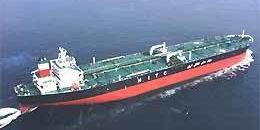The threat of NITC losing vital protection and indemnity insurance appears to have been lifted by the European Union.
The Iranian tanker owner was facing sanctions that would have deprived it of P&I and hull cover but the regulations that are to be implemented contain significant concessions.
There is a double “carve out” from a general prohibition on provision of insurance or reinsurance to Iranian entities or bodies that appears to mean NITC owned tankers will be able to continue trading.

The carve out is in respect of compulsory or third party insurance for Iranian entities based in the EU.
The cover provided by the P&I clubs can be compulsory under oil pollution conventions, often protect third parties and of NITC’s 39 vessel fleet, 30 vessels fly the Maltese flag and nine that of Cyprus, so the Tehran based tanker owner appears a potential beneficiary.
Charterers of Iranian controlled ships will also be able to buy European insurance.
The wording of the EU regulations imposing additional sanctions on Iran is significantly different from that in a final draft, so it seems likely that the change is a result of lobbying by the flag states and others to keep the NITC fleet trading.
There is no definitive guidance as yet that this is the true intent of the regulations imposing the sanctions but a signal is that a specific section of the earlier draft defining an Iranian vessel as one either flying the flag of the country or owned in whole or part by Iranian interests is deleted.
Under earlier drafts, NITC faced the loss of cover from Steamship Mutual and the UK Club - its two main P&I mutuals - as well as the end of more modest links with the West of England and North of England clubs.
The new sanctions will now be more of a hindrance than the loss of a “ticket to trade” to NITC, which owns 25 VLCCs, nine suezmaxes and five aframaxes.
Under the new sanctions, NITC still faces having to find replacement hull and related insurance covers from underwriters outside Europe.
In an earlier concession from the original draft of the regulations, insurers were allowed to provide cover for ships trading to Iranian ports provided they are not carrying prohibited cargoes, such as weapons or nuclear related materials.


